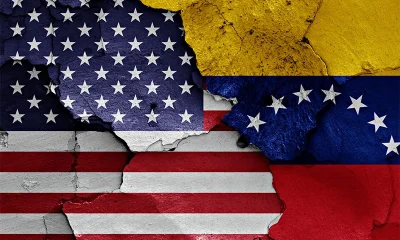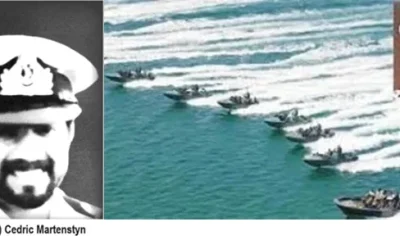Editorial
AG vs crooks

Friday 20th November 2020
Attorney General Dappula de Livera has got tough with the police in a bid to jolt them into launching a probe to ascertain what actually led to the emergence of the Minuwangoda garment factory cluster of COVID-19, which triggered the second wave of infections in the country, and who is responsible for endangering the lives of people. The police are doing their darnedest, obviously at the behest of the powers that be, to delay the probe; the government would have the public believe that the Minuwangoda cluster is now over and there is no need for an investigation. It cannot dupe the discerning people.
The AG has taken up the cudgels for the people who are undergoing tremendous suffering due to the second wave of COVID-19. The country is fortunate to have some intrepid public officials, and the AG deserves not only plaudits but also unstinted backing from the public as well as professional and civil organisations. The Bar Association of Sri Lanka ought to join forces with him to have the explosive start of the second wave of the pandemic probed properly.
Military drones are being used to round up people who play cricket in areas under lockdown and prosecute them. Ordinary citizens are arrested and their vehicles taken into custody for violating quarantine curfews. Even a person who walks on a public road without wearing a face mask runs the risk of being nabbed. But those whose commissions or omissions caused the second wave of infections, endangered the lives of all Sri Lankans and further debilitated the economy have apparently gone scot free thanks to their political connections.
The police, who have a ‘proud’ history of having hauled up before courts two small girls for stealing a few coconuts and snitching a five-rupee coin, should be ashamed of baulking at launching the probe ordered by the AG.
Strangely, an otherwise cantankerous Opposition has chosen to remain silent on the unforgivable delay in probing the Minuwangoda COVID-19 cluster. Is it that the holier-than-thou SJB politicians have also benefited from the largesse of the culprits?
Meanwhile, pressure is mounting on the AG to prosecute SJB MP and former Minister Rishad Bathiudeen, on the basis of a recent Appeal Court judgment, which has deemed the clearing of a section of the Kallaru forest reserve for a housing scheme illegal and ordered Bathiudeen to bear the total cost of reforesting of the area. Both the government and the Opposition are in a spot. The current leaders are responsible for having created Bathiudeen, the politician, and allowed him to embark on his deforestation mission which began during a previous Rajapaksa government.
The Opposition politicians cannot be expected to call for legal action against Bathiudeen because he is now their man. They never miss an opportunity to take moral high ground and condemn government politicians for breaking the law, but they are pretending that the Kallaru forest reserve does not exist. Let these worthies be told that the rape of forests is as grievous as murder.
Maithripala Sirisena has been receiving praise for a gazette notification he signed in 2019, when he was the President, to expand the extent of the Sinharaja rainforest, by annexing an adjacent forest thereto. He did not care to prevent the destruction of the Wilpattu forest, illegal sand mining, illicit felling, etc., as the Minister of Environment, but his action to protect the Sinharaja rainforest is to be highly appreciated. Strangely, it took about one year for the gazette notification at issue to be published. It is hoped that the government will stop promoting the construction of roads that pose threats to forests, especially Sinharaja, and reverse its decision to allow the so-called ‘other forests’ to be utilised for agricultural purposes. These ecologically important wooded areas must never be exploited. Enough land is available elsewhere for cultivation, and if post-harvest losses and the colossal waste of agricultural produce due to lack of storage and distribution facilities are minimised, the national food production will increase significantly, and there will be no need for opening up forest lands for cultivation.
The ruling family has a deep batting line-up, as it were, and spares no pains to fortify the future of its younger members, who are being groomed for leadership. But they as well as the children of ordinary citizens will inherit a 65,610 sq. km desert unless the present dispensation cares to protect the fast receding forest cover. Budget 2021 has a special section on forest conservation, spelling out how the government intends to increase the forest cover. But many a pair of shoes is said to be worn out between saying and doing. If the government is so keen on forest conservation, it must have Bathiudeen prosecuted for the destruction of a vast extent of forest land. That is the least it can do to make amends.
Editorial
Poor schools on chopping block

The Opposition asked the government, in Parliament on Friday, whether the latter would go ahead with its plan to close down low-attendance schools, and if so, what would happen to the students in them. The government said the number of students would not be the sole criterion for what it described as ‘school restructuring’, and factors such as population density and transport would also be taken into consideration. Its response smacked of obfuscation.
President Anura Kumara Dissanayake, speaking in Parliament, in July 2025, said 98 state-run schools were without new admissions. Pointing out that about 15% schools had fewer than 50 students each, and about two-thirds of schools had fewer than 100 students each, the President said a strategy to overcome the problem might necessitate the permanent closure of some of those seats of learning. According to teachers’ trade unions and organisations dedicated to protecting universal free education, most of these low-enrolment schools are situated in rural areas. The predicament of these schools is usually attributed to several factors such as the development of public transport, which has enhanced students’ mobility and lessened their dependence on rural schools which are in a state of neglect.
The Ceylon Teachers Union (CTU) has accused the government of trying to close down low-enrolment schools across the country, and redeploy teachers currently working in them to fill vacancies elsewhere. There are 10,146 state-run schools in Sri Lanka. Of them 9,750 are under Provincial Councils and 396 are national schools. About 800 rural schools have already been closed down during the past several decades, and it is feared that many more will face the same fate in the near future.
One of the pithy slogans the JVP coined during its second armed uprising in the late 1980s was ‘Kolombata kiri, gamata kekiri’ (‘milk for Colombo and melon for the village’), which highlighted the glaring urban bias in the allocation of state resources for development. Those who voted the JVP-led NPP into power, expected underprivileged schools to be developed as a national priority. But all signs are that they will be left with neither ‘milk’ nor ‘melon’.
Previous governments, which the JVP/NPP has condemned as a curse, bore the cost of operating low-enrolment schools. True, they also closed down some low-attendance schools but did not plunge head first into doing so. What one gathers from the statements made by the JVP/NPP heavyweights, including President Dissanayake, is that the government is planning to go full throttle on the school closure project.
Closing down low-attendance schools may make economic sense for the NPP and the Bretton Woods Twins, but that is bound to lead to serious social issues. The government has offered to provide the students in schools earmarked for closure with transport to other schools. This offer is based on the assumption that transport is the sole factor that has prevented them from attending urban schools. There are other reasons why they have had to stay in the underprivileged schools.
Prudence demands that the JVP-led NPP government refrain from rushing to close down the low-enrolment schools and explore ways and means of making them attractive to more students who cannot attend urban schools for reasons other than transport issues. Otherwise, there might be an increase in the school dropout rate in the rural sector. President Dissanayake, in his aforesaid speech, informed Parliament that the school dropout figures had risen from 16,673 in 2019 to 20,759 in 2022, before plateauing at 20,755 in 2024. Everything possible must be done to bring the dropout rate down in the shortest possible time. A steep school dropout rate is far more than a mere statistic; it is a symptom of systemic social issues.
The state has a strong justification for bearing the cost of operating low-attendance schools, for such expenditure helps reduce dropouts, promote educational equity, prevent social problems and build human capital. The government must handle this sensitive issue with great care and ensure that the poor students will have at least ‘melon’.
It is said that he who opens a school door, closes a prison. Ironically, questions happened to be raised in Parliament about the closure of underprivileged schools soon after the government’s declaration that it would spend Rs. 4.36 billion to construct a new prison in Kandy.
Editorial
When docs down stethoscopes

Saturday 24th Junuary, 2026
Doctors launched a 48-hour token strike yesterday in protest against what they have described as the government’s failure to implement a six-point agreement reached between the Government Medical Officers’ Association (GMOA) and the Ministry of Health. They are demanding that their allowances be increased and a separate service minute be introduced for the state sector doctors, among other things. The government has claimed that the doctors’ demands are unreasonable, and the strike did not cripple the state health institutions. It is sounding just like its predecessors.
The government is either misinformed or believing in its own propaganda lies. Doctors’ strikes always have a crippling impact on the state-run hospitals and cause unbearable suffering to patients who are dependent on free healthcare. The government should stop making false claims, and face reality.
Ideally, doctors should not strike at the expense of the sick, but there arise situations where they are compelled to flex their trade unions muscles to jolt governments into heeding their grievances. The incumbent government led by the JVP, which used strikes as part of its strategy to capture state power, has failed to be different from the previous administrations which mismanaged labour issues and provoked workers into trade union action, causing much inconvenience to the public. State workers and their trade unions backed the JVP-led NPP to the hilt, enabling its meteoric rise to power, and after winning the 2024 general election, the NPP declared that there would be no need for strikes thereafter because the new government would resolve all trade union disputes amicably without leaving any room for work stoppages. That pledge has gone unfulfilled.
Opinion may be divided on the striking doctors’ demands, but if the government has agreed to grant them, it must fulfil its pledge or have another round of negotiations and arrive at a compromise formula. It will be a mistake for the government to play a game of chicken with the GMOA or try to intimidate doctors with the help of its propaganda hitmen and front activists who stage protests against strikers, posing as patients and concerned citizens and calling for action to crush trade union struggles. Such tactics are counterproductive.
The warring doctors must also be flexible. Although the government, in its wisdom, has boasted that the state coffers are overflowing and it is free from pecuniary woes due to its proper economic management and its successful battle against corruption, the economic situation is not that rosy. Recent natural disasters have taken a heavy toll on the economy, and rebuilding and relief programmes will cost a great deal of state funds. So, the GMOA should factor in this harsh reality and act accordingly for the sake of the ordinary people who cannot afford to pay for healthcare. It is the interests of the public that must prevail.
The GMOA has threatened to stage a continuous strike unless the government grants its demands without delay. If the history of health sector strikes is anything to go by, the doctors are very likely to carry out their threat. The government should stop letting the grass grow under its feet and bring the GMOA to the negotiating table, and have a serious discussion. An assurance from President Anura Kumara Dissanayake himself that the government’s promises to the doctors will not go unfulfilled may help defuse tension and prevent a crippling health sector strike. A confrontational approach is bound to aggravate the situation.
Editorial
A tale of two AGs and dirty politics

Friday 23rd January, 2026
The JVP-led NPP government has delayed the appointment of one AG—Auditor General—and is in overdrive to oust the other AG—Attorney General. Determined to parachute a ruling party crony into the post of Auditor General, allegedly in a bid to cover up corrupt deals on its watch, the government is believed to be biding its time until the reconstitution of the Constitutional Council to achieve its goal. The JVP/NPP is unashamedly using its propaganda brigade to carry out malicious social media attacks on Attorney General Parinda Ranasinghe Jr., PC, and having public protests held against him in a bid to hound him out of office.
It is said that a bad workman blames his tools. Similarly, an incompetent government quarrels with vital state institutions and public officials when it finds itself in trouble or fails to deliver. Inefficient, arrogant politicians also launch witch-hunts against key state officials who have the courage to stand up to political pressure, fiercely defend their independence and carry out their duties and functions without fear or favour. This, we have witnessed during successive governments. It is no surprise that the JVP-led forces are all out to oust AG Ranasinghe.
Not that the Attorney General’s Department has been truly independent and blameless; it has its fair share of servile officials who pander to the whims and fancies of ruling party politicians. This newspaper has been critical of the manner in which the AG’s Department handled some cases and helped open escape routes for politicians in power and their cronies. There is a huge backlog of cases due to inordinate delays on the part of the AG’s Department. These institutional deficiencies have been there for decades, and the incumbent AG alone cannot be blamed for them. There is a pressing need to straighten up the AG’s Department, which is in need of restructuring. Devolution is among the proposed solutions.
Government supporters have been holding protests, making unsubstantiated allegations against AG Ranasinghe and calling for his ouster. The tendency to hold kangaroo trials is in the JVP’s DNA. The JVP acted as the prosecutor, judge, jury and executioner in the late 1980s; it gunned down quite a few professionals including University Vice Chancellors and the heads of some other state institutions during its reign of terror. Now, it has apparently shifted from assassinations to character assassination, which can be a fate worse than death for most people. It used death-dealing sparrow units to eliminate its targets in the past. Today, it deploys its propaganda brigade to destroy its opponents politically.
If anyone believes that the AG is at fault, he or she can invoke the jurisdiction of either the Appeal Court or the Supreme Court to seek redress. If the government has irrefutable evidence to prove its supporters’ allegations against AG Ranasinghe, then Parliament can remove him after a probe. Dirty social media attacks and protests are certainly not the way.
In 2012-13, the JVP rightly defended the then Chief Justice Dr. Shirani Bandaranayake, when the Mahinda Rajapaksa government targeted her for political reasons and launched a vilification campaign against her before wrongfully impeaching her. Now, the JVP-led NPP government stands accused of trying to get rid of the state prosecutor.
The ongoing propaganda campaign against the AG could also be part of a strategy to paint a black picture of the AG’s Department, turn public opinion against it and prepare the ground for setting up the proposed Independent Prosecutor’s Office.
When the present-day government leaders promised ‘a system change’ during their election campaigns in 2024, it was thought that they were planning to change the systems for the better, but now one wonders whether they are bent on changing the existing systems for the worse by politicising them more.
The Bar Association of Sri Lanka deserves praise for having taken up the cudgels for beleaguered AG Ranasinghe. Let all right-thinking Sri Lankans, particularly the state sector professionals, be urged to follow suit.
-

 Features6 days ago
Features6 days agoExtended mind thesis:A Buddhist perspective
-

 Opinion5 days ago
Opinion5 days agoAmerican rulers’ hatred for Venezuela and its leaders
-

 Business3 days ago
Business3 days agoCORALL Conservation Trust Fund – a historic first for SL
-

 Opinion3 days ago
Opinion3 days agoRemembering Cedric, who helped neutralise LTTE terrorism
-

 Opinion2 days ago
Opinion2 days agoA puppet show?
-

 Opinion5 days ago
Opinion5 days agoHistory of St. Sebastian’s National Shrine Kandana
-

 Business10 hours ago
Business10 hours agoComBank advances ForwardTogether agenda with event on sustainable business transformation
-

 Features4 days ago
Features4 days agoThe middle-class money trap: Why looking rich keeps Sri Lankans poor













